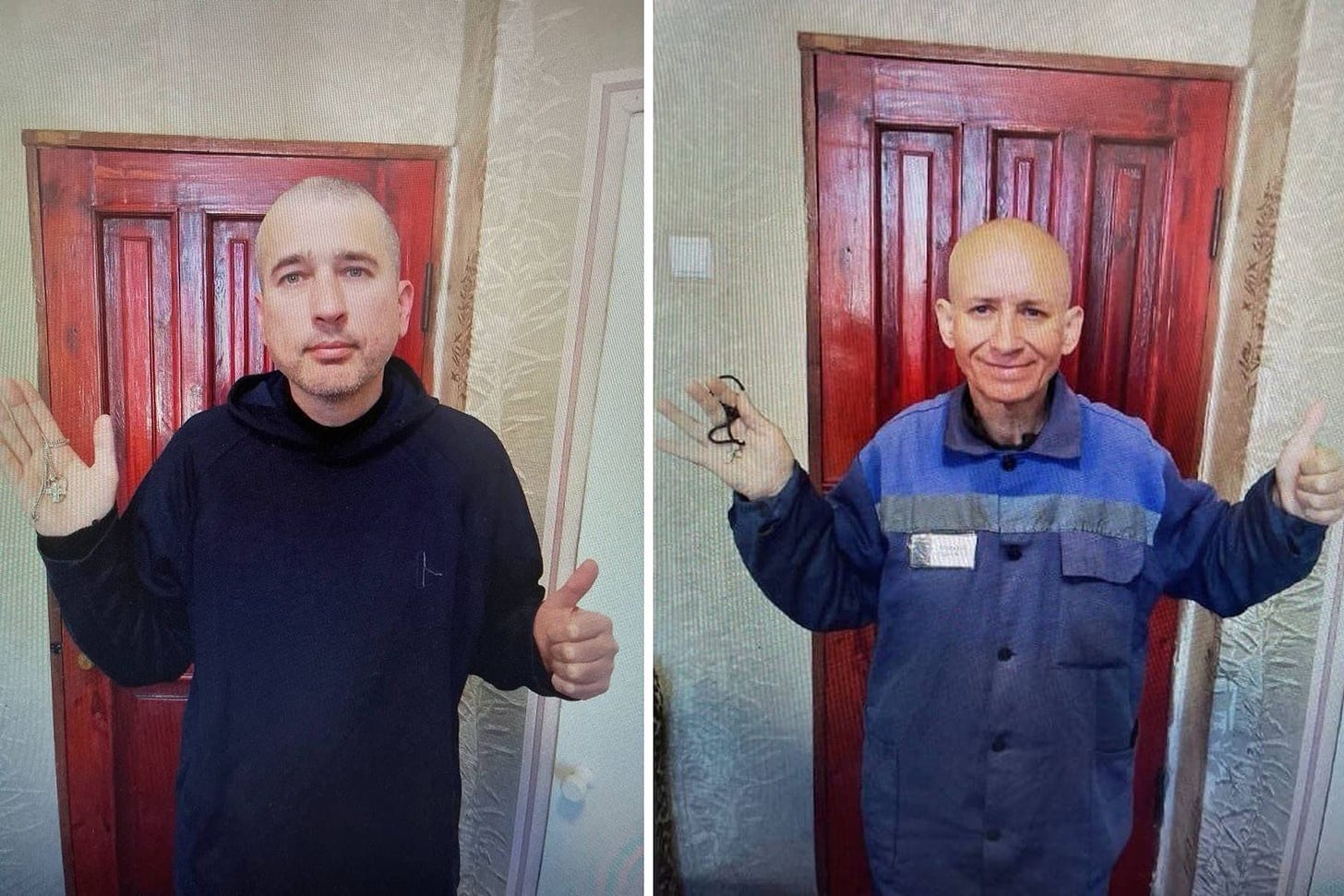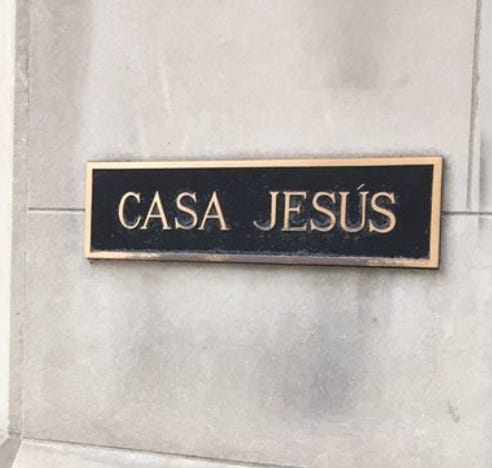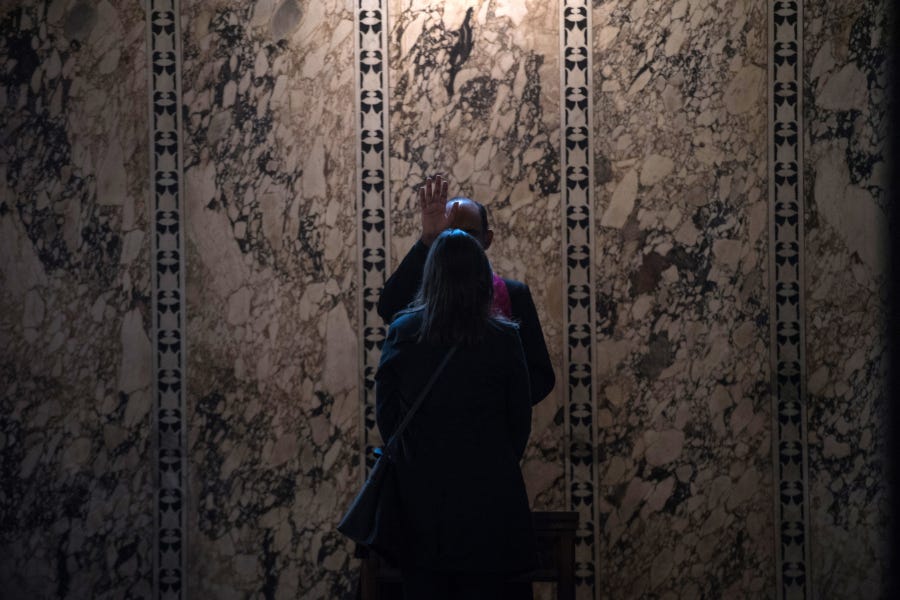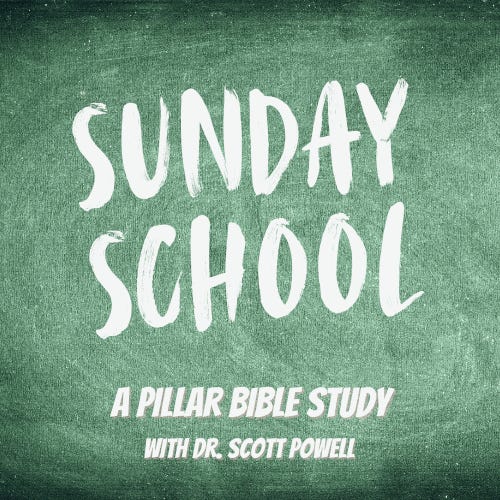Two Ukrainian Catholic priests were released on Friday, more than 18 months after they were arrested by Russian forces in the occupied Ukrainian city of Berdiansk in the region of Zaporizhzhia, south-eastern Ukraine.

Fathers Ivan Levitsky and Bohdan Geleta, both of the Congregation of the Most Holy Redeemer, served the Greek Catholic and the Latin Catholic communities of Berdiansk and chose to remain in the city after it was occupied by Russian forces in 2022.
In November 2022, the pair disappeared. It later emerged that they had been arrested by Russian authorities, and charged with sabotage and espionage.
Russian military officials claimed to have found weapons and ammunition hidden in a church, and a map which allegedly served a military purpose.
The Ukrainian Greek Catholic Church (UGCC) has denied that there were ever weapons or ammunition hidden on church grounds and that the map, though genuine, was marked with the 14 Stations of the Cross and had been used to plan religious processions.
Ukrainian Catholic leaders suggested instead that Fr. Levitsky had incurred the wrath of Russian occupiers by gathering the local Catholic community in the town’s main square every day at noon to pray for peace.
Russia has long displayed animosity towards the Ukrainian Greek Catholic Church.
Greek Catholic activities have been made illegal in Crimea, for example, which was occupied by Russia in 2014. But the Church has a relatively small presence in Eastern Ukraine, with most of its adherents living in the west of the country. Though the few Greek Catholic communities in occupied Ukraine have been harassed and seen their services suspended, most priests of the Church have since left the regions and there are no other known cases of Catholic clergy in Russian custody.
Very little is known about what transpired between the date of the arrest of Frs. Levitsky and Geleta and their release, including how they were treated, or where they were held.
Shortly after their arrest, local Ukrainian Church authorities expressed concern that the priests might be subjected to torture, in order to force them to confess to the charges of holding weapons and conspiring against occupying Russian forces.
But allegations of torture have not been confirmed, and the priests have not spoken publicly since their release.
At the time of their detention, sources also alleged that the arrest of the two Catholic priests may have been Russia’s retaliation against mounting pressure by Ukrainian civilian authorities against the Ukrainian Orthodox Church which remained aligned with the Russian Orthodox Church after the invasion.
Ukraine currently has two major Orthodox churches, one of which is historically linked to Moscow, and another which was granted canonical status and autocephaly by the Patriarch of Constantinople. The feud between the two Churches, and alleged mistreatment of orthodox Christians loyal to the Moscow Patriarchate, contributed to the tension which eventually led to Russia’s attempted full-scale invasion of Ukraine.
The news of the priests’ release was confirmed by the Ukrainian Greek Catholic Church itself, on the Ukrainian language section of its official website.
In the statement, the UGCC, which is the largest of the 23 Eastern Catholic Churches, attributed the clerics’ release to the intervention of key Vatican figures, mentioning Pope Francis, Cardinal Pietro Parolin, Cardinal Matteo Zuppi, and Archbishop Visvaldas Kulbokas by name.
Parolin is the Secretary of State of the Vatican, and Kulbokas is the Lithuanian-born apostolic nuncio to Ukraine, one of the few diplomats who refused to leave Kyiv when Russia began its full-scale invasion. Zuppi is Pope Francis’ special envoy to Ukraine, tasked with trying to negotiate peace between the two countries.
Though a full peace plan has yet to emerge, the Vatican has been credited in the past with successfully mediating prisoner exchanges. It is unclear, at the moment, if Ukraine released any prisoners of war in exchange for the release of the two priests, though reports in early June by Forum 18 – an organization dedicated to promoting religious freedom, with a special focus on Eastern Europe – stated that Russia may have proposed exchanging them for two Orthodox priests in custody in Ukraine.
Ukrainian civil authorities have accused the Orthodox Church loyal to the Moscow Patriarchate of collusion with the enemy, and at least two high-profile clerics, Metropolitans Pavlo and Ionafan, have been arrested in this context.
According to Russian Media, Metropolitan Ionafan was sent to Russia as part of a prisoner exchange in early June, so it is possible, though as yet unconfirmed, that he may have been released as part of the deal to secure the freedom of Levitsky and Geleta.



